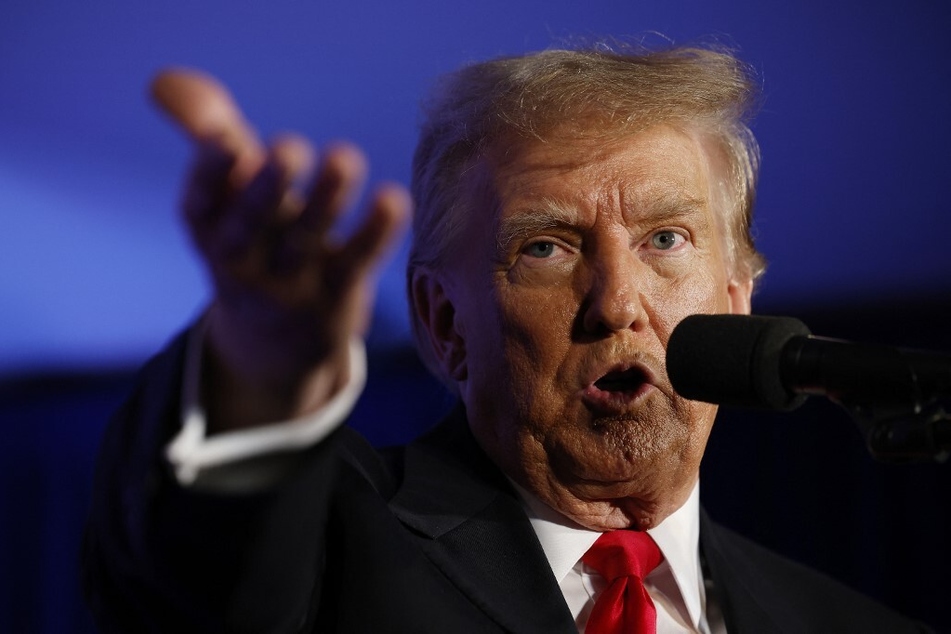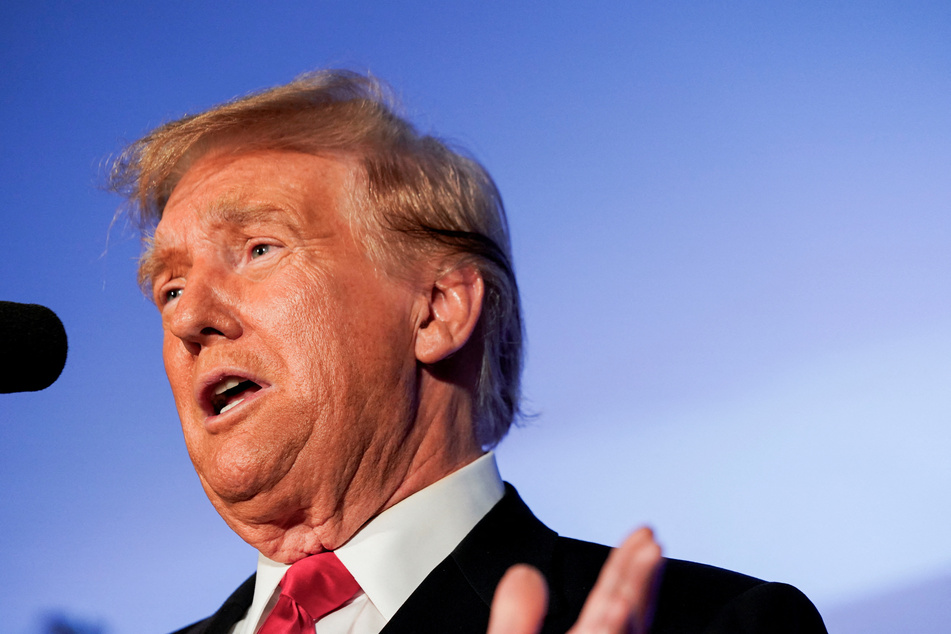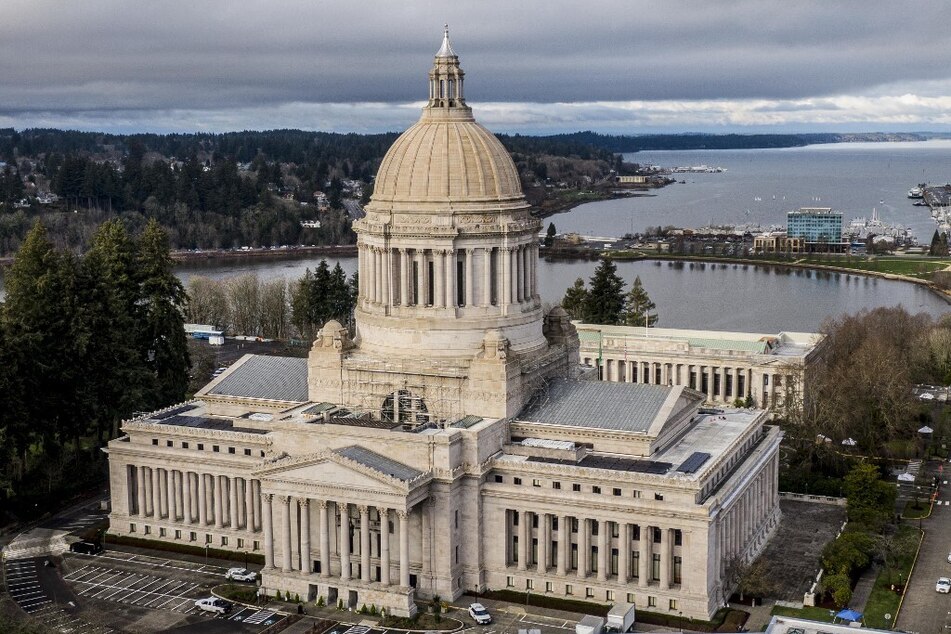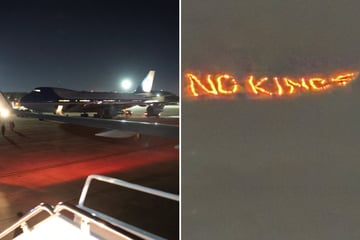Washington state judge denies effort to remove Trump from ballot
Olympia, Washington - Donald Trump will remain on Washington's presidential primary ballot after a judge ruled Thursday there was no clear error when the secretary of state placed him on the official list of candidates.

Thurston County Superior Court Judge Mary Sue Wilson, in rejecting the effort by eight Kitsap County residents to remove Trump's name, said Washington's process for taking a candidate off the ballot does not contemplate a trial, fact-finding, or intensive debate on the issue. Wilson emphasized that state law says a ballot challenge must be filed within two days of the candidate list being finalized and required her to make a decision within five days of the challenge being filed.
"The court determines that the secretary of state acted consistent with his duties," Wilson said from the bench. "An order directing the secretary of state to take different action, an order from this court, is simply not supported by the statutes and not supported by the affidavit of the electors."
Wilson declined to consider a question about Trump's place on the general election ballot, calling it premature, but noted the possibility of people, "when it is right," potentially challenging Trump's spot there as well.
The Kitsap County residents had pushed for Trump's removal from the ballot, arguing that his efforts to overturn the 2020 election and his role in the January 6, 2021, attack on the US Capitol constitute an insurrection and make him ineligible for office.
A Kitsap County judge, earlier this week, said the case should be heard in Thurston County, home of the state Capitol.
Donald Trump faces ballot eligibility challenges

The 14th Amendment of the US Constitution bars anyone who has served as "an officer of the United States" from holding office if they have "engaged in insurrection."
There have been challenges, under the 14th Amendment, to Trump's ballot eligibility in at least 35 states. In two states, Colorado and Maine, officials have ordered the former president removed from the ballot, although those decisions are on hold, pending appeals.
In Colorado, Wilson said, there were months between the filing of the ballot challenge and ballot deadlines. And there was a full five-day trial to consider evidence. There was time for a district court to rule and for the state Supreme Court to consider an appeal.
None of that is contemplated by Washington law, Wilson said, which only allows her to correct clear errors.
The issue may ultimately be decided by the US Supreme Court, which will hear an appeal of the Colorado case February 8. On Wednesday, a Maine court ruled that Trump could remain on that state's ballot until the Supreme Court rules. Oregon's Supreme Court recently denied a challenge to Trump's ballot status, saying it would wait for the US Supreme Court.
Whatever decision comes from the US Supreme Court will almost certainly be too late for Washington's March 12 presidential primary. Federal law requires ballots to be sent to military members serving overseas and citizens living abroad 45 days before an election.
That would give elections officials in Washington a January 27 deadline to get ballots finalized, printed, and in the mail.
What's next in Washington?

The ballot challenge in Washington was led by Frankey Ithaka, a Kitsap County middle school teacher, who was spurred to action after hearing a radio segment on the issue. Ithaka then recruited friends and acquaintances to join the effort.
"If not us, then who?" Ithaka said after a brief court hearing Tuesday in Kitsap County. "If we are not a nation that adheres to the Constitution, then we have nothing to stand on."
The eight petitioners filed their complaint and made their initial court appearance without a lawyer but had a lawyer for Thursday's hearing.
David Vogel, the attorney for Ithaka and the other petitioners, said at the hearing that Wilson should look to the Colorado ruling.
"The Washington statutes are not identical to the Colorado statutes but they should be given their plain sense meaning," Vogel said. "It is a wrongful act to put a person who is constitutionally disqualified by the 14th Amendment on our state ballots."
Vogel, after the hearing, said he doesn't anticipate filing an appeal but does expect to file a more substantial ballot complaint should Trump reach the general election. The petitioners' initial complaint was only a paragraph long, and Wilson ruled that she had to rule based "on the face of the affidavit."
"What we need to do is beef up the affidavit for the general election," Vogel said.
Washington law allows any voter to request that someone be removed from the ballot, charging that person with a "wrongful act" or that putting their name on the ballot would be an error.
After the primary, Washington law allows any voter to challenge the right of a candidate to appear on the ballot if the candidate has been convicted of a felony. Trump faces 91 felony counts in four different cases, across two states and two federal courts.
Section 3 of the 14th Amendment, which contains the insurrection clause, has only rarely been used since it was ratified after the Civil War. Most recently, a judge removed a county commissioner in New Mexico – the co-founder of Cowboys for Trump – from office for his role in the January 6 attack on the Capitol. Before that, no one had been removed or barred from office under that section of the Constitution in more than a century.
Cover photo: iCHIP SOMODEVILLA / GETTY IMAGES NORTH AMERICA / Getty Images via AFP

